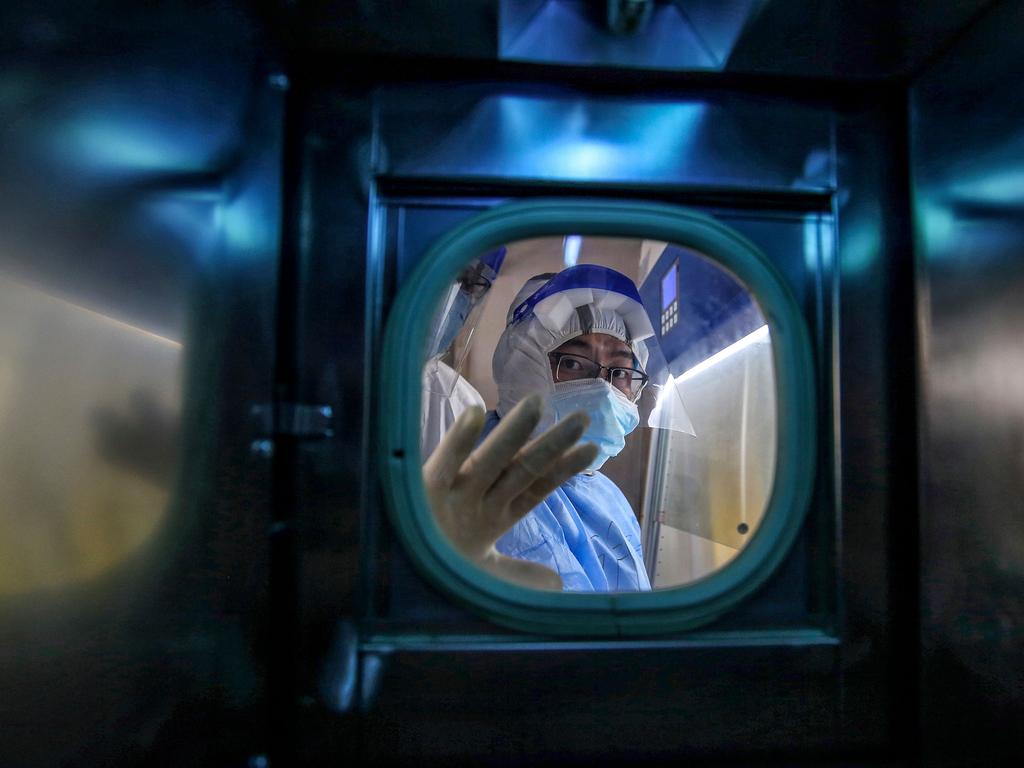
When Albert Camus set out to write The Plague, the novel that more than any other work earned him the Nobel prize for literature in 1957, words almost failed him.
“In all my life,” he wrote in his notebooks, “never [had I] experienced such a feeling of failure.” As he struggled through draft after draft to describe the “unusual events” that “occurred in 194_” when Oran, “a large French port on the Algerian coast”, was struck by the plague, his difficulty lay in explaining how the extraordinary had merged into the ordinary to the point of almost defining a new normality.
The events Camus narrated were certainly extraordinary. With the disease, which no one had anticipated, making its “slow, deliberate progress” through Oran like “some monstrous thing that crushed all in its path”, shops were shut, travel was prohibited, isolation camps were established and rumours became the order of the day.
Soon enough, the worst-affected areas were sealed off, a state of emergency was declared and martial law enforced. Even in the least-affected places, official intrusions into daily life became pervasive, and regulations were imposed that prevented baptisms and the decent burial of the dead.
As the clampdowns persisted, scams flourished, but common decency, as exemplified by Dr Bernard Rieux, Camus’s narrator, who quietly, humanely and untiringly works against the plague, could not be crushed.
Nor, even more importantly, could the truth. That is why Rieux, in reflecting on the plague year, called its real hero Joseph Grand, the tall, thin and poorly paid municipal clerk who catalogued the disease by painstakingly recording on his filing cards the details of each illness and each death.
Demonstrating that every epidemic is vulnerable to its own mathematical graph, Grand’s meticulous mapping of the disease imposed predictability, and hence the possibility of human control over what Camus elsewhere described as “the horrifying mathematics that orders our condition”.
And even though the end of the plague, which “had been hounded down and cornered”, came as an inexplicable surprise to the people of Oran, nothing more clearly signalled it as a victory of enlightenment over superstition than the mayor’s order “for the street lamps to be lit, as in the past”, marking the town’s defeat of what Psalm 91, which Camus often quoted, describes as “the pestilence that walketh in darkness”.
Yet just as Camus was finishing The Plague late in 1946, the optimism born from the defeat of Nazism was rapidly fading. By 1948, totalitarianism had consolidated its grip over large parts of Europe, defining the backdrop for Camus’s drama, The State of Siege. Rarely read nowadays, and even less frequently performed, no literary work so sharply prefigures what the world witnessed only a few months ago in Wuhan.
Set once again in a port town densely enmeshed in international trade, this time the plague that invades the city is portrayed not as a metaphysical affliction but as a governmental one, providing the means by which a dictatorial regime demonstrates the efficiency of total control.
The dictator and his cronies, who both use the plague and are themselves a plague, hardly seem satanic; on the contrary, the dictator boasts of “looking like an ordinary person, [who] doesn’t sit on a throne but on an office chair”. Nor does he “rule”, he simply “functions”, seeking, with the complicity of Cadiz’s most prosperous citizens, no grander goal than the maintenance of power itself.
Far from compromising that power, the disease allows the full deployment of the regime’s inner logic. Once a state of siege is declared — for “the charitable succour of those infected with disease” — every citizen is constantly monitored from a sinister observation post, ration points are allocated for good and bad behaviour and it becomes mandatory to carry a “certificate of existence” that must be frequently renewed.
The regime’s aim, however, is not to sow indiscriminate terror. It is to justify its rule by showing that only a regime operating on the principle that “you need a permit to do anything whatsoever” can save the people from the horror of infected death.
At the heart of its strategy is the destruction of all meaningful communication. In The Plague, wearing sterilised masks of “cottonwool enclosed in muslin” had served to “inspire confidence” in a credulous population. Now, the dehumanisation of speech and appearance is taken a step further by mandating, supposedly for protective purposes, facial devices that isolate people from each other and ensure that “nobody understands a word of what his neighbour says”.
And so as to be certain that its lapses will not be publicised, the regime decrees that “words are carriers of infection”.
That phrase, which is pivotal to the play, is hardly accidental. After all, in biblical Hebrew the three-letter character for “plague” is orthographically identical to that for “word”, with its first letter, which is the pictogram for a sprouting seed, indicating the disseminative properties its two meanings share.
But, while the plague was viewed in Egyptian mythology as an assault from the underworld on the legitimate order of the pharaoh’s absolute rule, it figures centrally in Exodus’ “signs and wonders” as “a touch from God” that highlights the injustice of the Jews’ slavery in Egypt and sets the conditions for their flight to freedom.
It is that freedom Jews celebrate at Passover, which began last week, by reading at the Passover dinner rabbinical commentary that, in exploring many differing points of view, exemplifies the power of the human word to call us to dialogue, reason and truth — and, by that means, conquer every affliction.
No one believed in that redemptive power of the word more passionately than Camus, who — in what would make a fitting epitaph for Li Wenliang, the Chinese doctor who died after exposing the coronavirus pandemic — emphasised that it takes only one man “to overcome his fear and rise up for the machine to start grating”.
Yes, dialogue could be suppressed for a while. But stifling communication, that “carrier of infection”, suffocates creativity itself, condemning authoritarian regimes, despite their much-vaunted efficiency, to the pestilence of dysfunction, stagnation and collapse.
Coming when democracy is on the defensive, today’s plague confronts the world once again with the choice Camus starkly identified: between the approach of Dr Rieux and Joseph Grand, which relies on reason to conquer disease, as Australia, for all its incidental missteps, has sought to do, and the pharaonic brutality of Xi Jinping and his henchmen. At this time, which for both Christians and Jews represents hope and new life, we should be grateful to Camus for finding, so many years ago, the words to say it.







